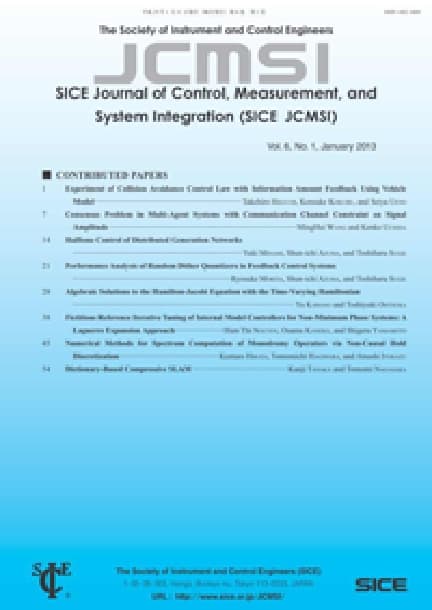Accessibilities of Wheelchair Users to Cross the Gaps and Steps between Platforms and Trains
Tsutomu HASHIZUME, Ikuo YONEDA, Hiroshi KITAGAWA, Shoichiro FUJISAWA, Osamu SUEDA
pp. 199-205
DOI:
10.9746/jcmsi.2.199Abstract
Gaps and steps between platforms and trains reduce the accessibility and mobility of people with wheelchairs in railway transportations. Using an experimental platform, the observations are performed how gaps and steps influence their capabilities for manual wheelchair or electric powered wheelchair users with spinal cord injury. A quantity of Normalized Driving Force (NDF) is introduced to evaluate the manual wheelchair user's abilities in the case of getting on or off the trains. Three types of electric powered wheelchairs are also tested under the same experimental conditions as the manual wheelchair. The dynamic wheelchair driving force is measured by using a torque meter equipped on a wheelchair to analyze the required force when getting on the trains. To improve practical accessibility of such people, an assistive device for boarding the trains is designed and its effect is verified.
Readers Who Read This Article Also Read
SICE Journal of Control, Measurement, and System Integration Vol.2(2009), No.2
SICE Journal of Control, Measurement, and System Integration Vol.2(2009), No.5
SICE Journal of Control, Measurement, and System Integration Vol.8(2015), No.6









